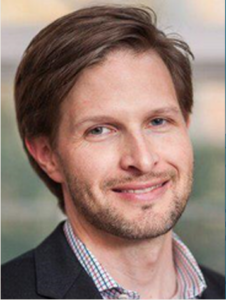By John McGee || Contributing Writer

On Thursday, September 7, Franklin & Marshall was honored to welcome Dr. Jonathan Brown as this week’s Common Hour speaker. Brown is a distinguished professor at Georgetown University, author, and advocate for Muslims around the globe. His book, Misquoting Muhammad, was named one of the top books on religion by The Independent in 2014. Brown’s talk was centralized around the theme that America’s views on Islam can be seen as a screen on which we project our own anxieties, internal contradictions, hypocrisies, and our inability to deal with real difference.
“Islam is a rorschach test for Americans,” he so succinctly stated in the first minute of his talk. He went on to explain that a rorschach test is an overflow of data that forces humans to try and make connections, predictions, and assumptions based on how we perceive it. Brown parallels this to the 1.5 billion Muslims located around the world. When given such a vast amount of data, humans are forced to generalize. He argues that our remarkable ability to categorize leads us astray when we ignore the complexities of a human being and try to fit them into clearly defined groups.
According to Brown, America relies on Muslims to fill the role of the “other.” He claims that we need this “other” because as Americans, we tend to use negative integration to define ourselves. In other words, we define ourselves based on what we are not. We see attention-grabbing news articles written about the Middle East on subjects such as honor killings, terrorism, or the suppression of free speech and immediately categorize the Middle East as being in opposition of our idea of “Americanness.”
Brown also showed a handful of statistics to further demonstrate our misunderstanding of Islam and its violent associations. When looking at Muslims in the United States, we see that .0007% have been arrested for violent crime, compared to 2.7% for American veterans. Brown made it extraordinarily clear that he was not making any claims or comparisons on the morality of the two groups in question, but that the numbers prove that American perceptions of the threat that Muslims pose are statistically unfounded. He jokes that, “If you want to be safe in America, you should follow around a Muslim” as they are actually less likely to commit a crime than many other demographics in this country.
But what does it mean to be a Muslim? Brown said that as Americans, we are constantly defining what a Muslim is without input from the members of the group. He emphasizes that Christians define what it means to be Christian, Jews define what it means to be Jewish, but Brown says that in the United States we don’t give that autonomy to those who identify as Muslim. If a Muslim were to claim their religion as a religion of peace, many Americans are quicker to assume they are being dishonest or are mistaken than to think that the individuals inside the religion should have the right to determine what the religion stands for. Instead, Brown says we decide to draw our own conclusions based on stereotypes and generalities.
If you are interested in learning more about Doctor Brown’s work and research, Misquoting Muhammad is available at the F&M bookstore. A list of his other publications is also available on Georgetown University’s website.
Junior John McGee is a contributing writer. His email is jmcgee@fandm.edu.